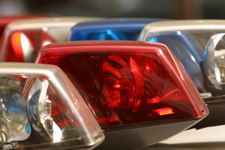 DUI Checkpoints
DUI Checkpoints
A relatively new phenomenon is causing more and more persons to be arrested for a DUI: the DUI checkpoint. DUI checkpoints must meet numerous requirements before any result obtained from them is valid. Police do not have unfettered discretion in establishing a DUI checkpoint. In fact, there are important limitations placed on them by both the US and California Supreme Courts.
First, the officers operating the checkpoint (field officers) cannot make important decision concerning the checkpoints. On the contrary, courts require that supervisors make key decisions of establishing the checkpoint, the selection of the site, and the procedures for the operation of the checkpoint.
Second, the courts have limited the discretion of the field officers so to protect motorists. The field officers cannot determine the procedure as to which vehicles (example: every fifth vehicle) should be stopped. A policy must exist that directs the field officers as to how to stop vehicles.
Third, the courts require that DUI checkpoints have numerous safety features. They insist that checkpoints have the proper lighting, warning signs and signals, and clearly identifiable official vehicles employed at the checkpoint.
Fourth, the checkpoint must be reasonably located.
Fifth, the time and duration of the checkpoint must be limited to avoid traffic problems.
Sixth, DUI checkpoint must have clearly visible warning lights and other signs of authority to establish that the stop was duly authorized.
Seventh, the length and nature of the detention are limited. Procedures must minimize the intrusion suffered by motorists and maximize safety by avoiding traffic jams.
Eighth, the checkpoint ought to be publicized in advance.
DISCLAIMER: The results of any person’s DUI case described on this web site and/or in the Bay Area DUI Law newsletter depend on factual and legal circumstances that are unique to a specific person. Information provided by this web site and/or the Bay Area DUI Law newsletter does NOT constitute a guarantee, warranty or prediction regarding the outcome of your legal matter. Any reference to laws, procedures, punishment or license consequences at court or the DMV in this web site and/or Bay Area DUI Law newsletter is NOT intended to be complete description of what can and will happen in any or every DUI case but instead is a simplified summary to facilitate the reader’s understanding of general issues involving DUI law. The law is in constant change; penalties and consequences change; as such, the reader should not and cannot rely upon anything mentioned in this web site and/or Bay Area DUI Law newsletter. The reader is strongly advised to seek competent legal counsel to ascertain the law, penalties and consequences that apply to his/her unique circumstances.

